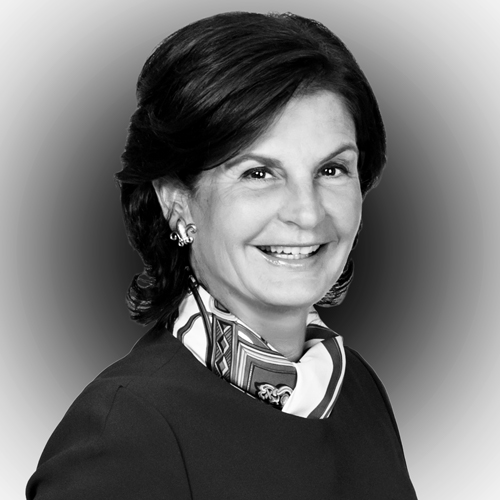Damon Jones, senior vice president and general counsel for Major League Baseball’s Washington Nationals, is an industry insider. After roaming the outfield and swinging at fastballs as a player with Division I University of California–Santa Barbara, he turned his attention to getting a law degree at Harvard. Yet the game followed him there, too. Minor league players he knew looked at his mounting legal credentials and asked him if he could represent them someday. “What initially got me interested in the business side was the players—contract negotiations and endorsements,” Jones says. “While I was in law school, I did a lot of research about the industry from that perspective.”
Jones then became an intern with Reich, Katz & Landis Baseball Group. The firm represented fifty Major League Baseball (MLB) players, including former Chicago Cubs outfielder Sammy Sosa—who was morphing into a superstar and on the precipice of chasing the single-season home run record at the time—as well as scores of minor leaguers. “I went into the office and did anything they asked,” Jones recalls. “I read contracts. I learned how the baseball draft works. I learned about free agency and salaries, and how to work with players on a day-to-day basis.”
After working as an associate with a law firm that represented DreamWorks Animation CEO Jeffrey Katzenberg in a highly publicized lawsuit against Disney over film and merchandising rights, Jones was hired as general counsel for Reich, Katz & Landis. “I felt like I had gained so much experience that it was a good time to say ‘yes’ and dive full-time into baseball,” he says.
In 2002, Jones joined Williams & Connolly LLP, a storied law firm that also ran a unique, full-service practice representing elite athletes. He spent six years there when the Washington Nationals came calling.
It had been thirty-five years since Washington, DC, had its own baseball team, and one major challenge was to build a fan base. This was complicated somewhat by the fact that many people in the city had developed a loyalty to the Baltimore Orioles, which was the closest major league team in proximity at the time. The Nationals had formerly been the Montreal Expos, and when the commissioner moved the team to Washington, DC, the Orioles objected, claiming that the move was a violation of its home-television territory. The dispute continues to be worked out in the courts.
“We’ve made sure to develop and maintain the ballpark in a way that is conducive to a great fan experience.”
Jones says that the team looked at the process of building a fan base in the tricky market as twofold: put a competitive team on the field, and create a tremendous in-park experience for fans attending games. “Our front-office team knew we had to hire great talent evaluators, develop through the draft and player development, and be patient rather than make an early splash hiring free agents,” Jones explains. “We built the Major League Club and the farm system through scouting and player development, and the Lerner family pledged not to take money out of the team for the first ten years.”
With a long-term player strategy in place, it was important to give fans a game experience that would keep them coming back even if the team wasn’t winning much. Initially, the Nationals played at the Robert F. Kennedy Memorial Stadium, where the National Football League’s Redskins played for many years while its new stadium was being built down the road.
That 42,000-seat complex opened in 2008, and as the Nationals’ wins increased, the ball club has continuously worked to enhance the fan experience at Nationals Park. “We’ve made sure to develop and maintain the ballpark in a way that is conducive to a great fan experience,” Jones says. “That includes running a clean ballpark with varied food options. Every year we implement new initiatives. Just recently we completely remodeled one of our premium clubs, adding an additional level. We expanded the bars and added other first-class touches. All of our emphasis is on our fans. Many people come primarily to watch the game on the field, but some just want to have a spectacular time in a clean, family-friendly park, and we want to provide that.”
At this time, the Nationals are one of the top-ranked teams in all of baseball, and Jones has straddled business and baseball operations to enable its ascendancy. Baseball operations means building rosters and signing players in the major and minor leagues, hiring coaches, and, in short, everything having to do with putting a team on the field. Business operations is everything else: broadcasting, sponsorship, ticket sales, legal, finance, and human resources.
“I think that because I had a baseball-operations background, playing the game and doing player contracts, working on collective bargaining and the draft, my work continues to increase in that area,” Jones says. “But on the business-operations side, I also work with everybody from the owners to the executive team to the rank and file on nearly every facet of our business.”
Jones also spends much of his time with the Washington Nationals Youth Baseball Academy, which launched in 2013. The academy is a way to help inner-city youth and weave the sport more tightly into the fabric of the city. The facility, in southeast DC, is an 18,000-square-foot education center with three baseball diamonds and seven classrooms, including a teaching kitchen where kids learn about eating healthy.
Over the past decade, baseball has decreased in popularity among inner-city youth who instead have been gravitating toward football and basketball, according to Jones. The academy is meant to reverse this trend, as well as make the Nationals integral to the health of the urban setting.
“I have a strong core belief in community service, particularly in underserved communities,” Jones says. “I view it as both a privilege and an obligation, especially as an African American. The lessons I learned as a player, even in Little League, had an impact on my development in ways I wasn’t aware of until much later. I want other kids to get that opportunity.”

